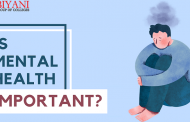DEFINITION
Obsessive-Compulsive Disorder (OCD) is a common, chronic and long-lasting disorder in which a person has uncontrollable, reoccurring thoughts (obsessions) and behaviors (compulsions) that he or she feels the urge to repeat over and over.
RISK FACTORS
1. Genetics
Twin and family studies have shown that people with first-degree relatives (such as a parent, sibling, or child) who have OCD are at a higher risk for developing OCD themselves. treatment.
2. Brain Structure and Functioning
Imaging studies have shown differences in the frontal cortex and subcortical structures of the brain in patients with OCD.
3. Environment
People who have experienced abuse (physical or sexual) in childhood or other trauma are at an increased risk for developing OCD.
SIGNS & SYMPTOMS
People with OCD may have symptoms of obsessions, compulsions, or both. These symptoms can interfere with all aspects of life, such as work, school, and personal relationships.
Obsessions are repeated thoughts, urges, or mental images that cause anxiety.
Common symptoms include:
• Fear of germs or contamination
• Unwanted forbidden or taboo thoughts involving sex, religion, and harm
• Aggressive thoughts towards others or self
• Having things symmetrical or in a perfect order
Compulsions are repetitive behaviors that a person with OCD feels the urge to do in response to an obsessive thought.
Common compulsions include:
• Excessive cleaning and/or handwashing
• Ordering and arranging things in a particular, precise way
• Repeatedly checking on things, such as repeatedly checking to see if the door is locked or that the oven is off
• Compulsive counting
Not all rituals or habits are compulsions. Everyone double checks things sometimes. But a person with OCD generally:
• Can’t control his or her thoughts or behaviors, even when those thoughts or behaviors are recognized as excessive
• Spends at least 1 hour a day on these thoughts or behaviors
• Doesn’t get pleasure when performing the behaviors or rituals, but may feel brief relief from the anxiety the thoughts cause
• Experiences significant problems in their daily life due to these thoughts or behaviors
TREATMENT
• Medication – Antidepressants are sometimes used in conjunction with therapy for the treatment of obsessive-compulsive disorder. However, medication alone is rarely effective in relieving the symptoms of OCD. fluoxetine , fluvoxamine ,sertraline
• Family Therapy – Because OCD often causes problems in family life and social adjustment, family therapy is often advised. Family therapy promotes understanding of the disorder and can help reduce family conflicts. It can also motivate family members and teach them how to help their loved one.
• Group Therapy – Group therapy is another helpful obsessive-compulsive disorder treatment. Through interaction with fellow OCD sufferers, group therapy provides support and encouragement and decreases feelings of isolation.
• Cognitive behavior therapy- The cognitive therapy component for obsessive-compulsive disorder (OCD) focuses on the catastrophic thoughts and exaggerated sense of responsibility you feel. A big part of cognitive therapy for OCD is teaching you healthy and effective ways of responding to obsessive thoughts, without resorting to compulsive behavior.





